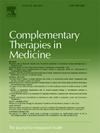针灸治疗功能性胃肠疾病的潜在益处:一项系统综述和荟萃分析
IF 3.5
3区 医学
Q1 INTEGRATIVE & COMPLEMENTARY MEDICINE
引用次数: 0
摘要
背景:许多功能性胃肠疾病(fgid)患者寻求补充和替代疗法来改善胃肠道(GI)症状。关于使用针灸来改善胃肠道症状的研究一直在增加,但结果一直不一致。目的利用最新数据和严格的评估体系,对针刺治疗FGIDs的有效性进行系统回顾和荟萃分析。方法检索PubMed、Web of Science、Cochrane Library和EMBASE数据库,检索自数据库创建至2023年10月15日针灸治疗FGIDs的随机对照试验(rct)。我们收集了有关胃肠道症状和不良事件的数据,并使用STATA 16软件进行meta分析。偏倚风险采用Cochrane’s risk of bias version 2 (RoB2)工具进行评估。采用建议分级法、发展法和评价法评价证据质量。结果共纳入29项随机对照试验,共5100名受试者。meta分析结果显示,与假针(RR 1.65, 95 %CI 1.35-2.03)和西药(RR 1.15, 95 %CI 1.07-1.23)相比,针刺的有效率更高,这与针刺频率和疗程有关。与假针灸或常规护理相比,针灸可显著改善胃肠道症状,包括一般症状(SMD 0.48, 95 %CI 0.25-0.72)、大便特征(MD 0.50, 95 %CI 0.22-0.78)和消化不良评分(MD 10.67, 95 %CI 4.88-16.47)。与西药相比,针灸仅在改善胃肠道一般症状方面有优势(SMD 1.33, 95 %CI 0.93-1.73)。针刺与假针、西药的不良事件发生率无差异。证据的总体确定性从极低到中等。结论目前的证据表明,针灸可能对改善FGIDs患者的胃肠道症状有积极作用,但需要进一步的高质量研究来验证其有效性。在纳入的研究中,可获得的证据受到方法学缺陷和潜在偏差的限制,导致证据质量总体较低。因此,对这些发现的解释应谨慎解释。本文章由计算机程序翻译,如有差异,请以英文原文为准。
Potential benefit with acupuncture in functional gastrointestinal disorders: A systematic review and meta-analysis
Background
Many patients with functional gastrointestinal disorders (FGIDs) seek complementary and alternative therapies to improve gastrointestinal (GI) symptoms. Research on the use of acupuncture to improve GI symptoms has been growing, but the results have been inconsistent.
Objective
To provide a systematic review and meta-analysis of the effectiveness of acupuncture-based treatment for FGIDs using the latest data and a rigorous evaluation system.
Method
We searched PubMed, Web of Science, Cochrane Library and EMBASE (OVID interface) databases for randomized controlled trials (RCTs) of acupuncture in the treatment of FGIDs from database creation to October 15, 2023. We collected data on GI symptoms and adverse events, and meta-analysis was performed using STATA 16 software. The risk of bias was evaluated using the Cochrane's risk of bias version 2 (RoB2) tool. The quality of evidence was evaluated with the Grading of Recommendations Assessment, Development and Evaluation approach.
Results
Twenty-nine RCTs involving 5100 participants were included. The results of meta-analysis showed that compared with sham acupuncture (RR 1.65, 95 %CI 1.35–2.03) and Western medication (RR 1.15, 95 %CI 1.07–1.23), acupuncture had a higher response rate, which was related to acupuncture frequency and treatment course. Compared with sham acupuncture or usual care, acupuncture significantly improved GI symptoms, including general symptoms (SMD 0.48, 95 % CI 0.25–0.72), stool trait (MD 0.50, 95 %CI 0.22–0.78) and dyspepsia score (MD 10.67, 95 %CI 4.88–16.47). Compared with Western medication, acupuncture only had an advantage in improving the general symptoms of GI (SMD 1.33, 95 %CI 0.93–1.73). No differences in adverse events were observed between acupuncture and sham acupuncture or Western medication. The overall certainty of the evidence ranged from very low to moderate.
Conclusions
Current evidence suggests that acupuncture may have a positive effect on improving GI symptoms in FGIDs, but further high-quality studies are required to validate its efficacy. The available evidence is limited by methodological flaws and potential biases in the included studies, resulting in an overall low quality of evidence. Therefore, the interpretation of these findings should be interpreted with caution.
求助全文
通过发布文献求助,成功后即可免费获取论文全文。
去求助
来源期刊

Complementary therapies in medicine
医学-全科医学与补充医学
CiteScore
8.60
自引率
2.80%
发文量
101
审稿时长
112 days
期刊介绍:
Complementary Therapies in Medicine is an international, peer-reviewed journal that has considerable appeal to anyone who seeks objective and critical information on complementary therapies or who wishes to deepen their understanding of these approaches. It will be of particular interest to healthcare practitioners including family practitioners, complementary therapists, nurses, and physiotherapists; to academics including social scientists and CAM researchers; to healthcare managers; and to patients. Complementary Therapies in Medicine aims to publish valid, relevant and rigorous research and serious discussion articles with the main purpose of improving healthcare.
 求助内容:
求助内容: 应助结果提醒方式:
应助结果提醒方式:


